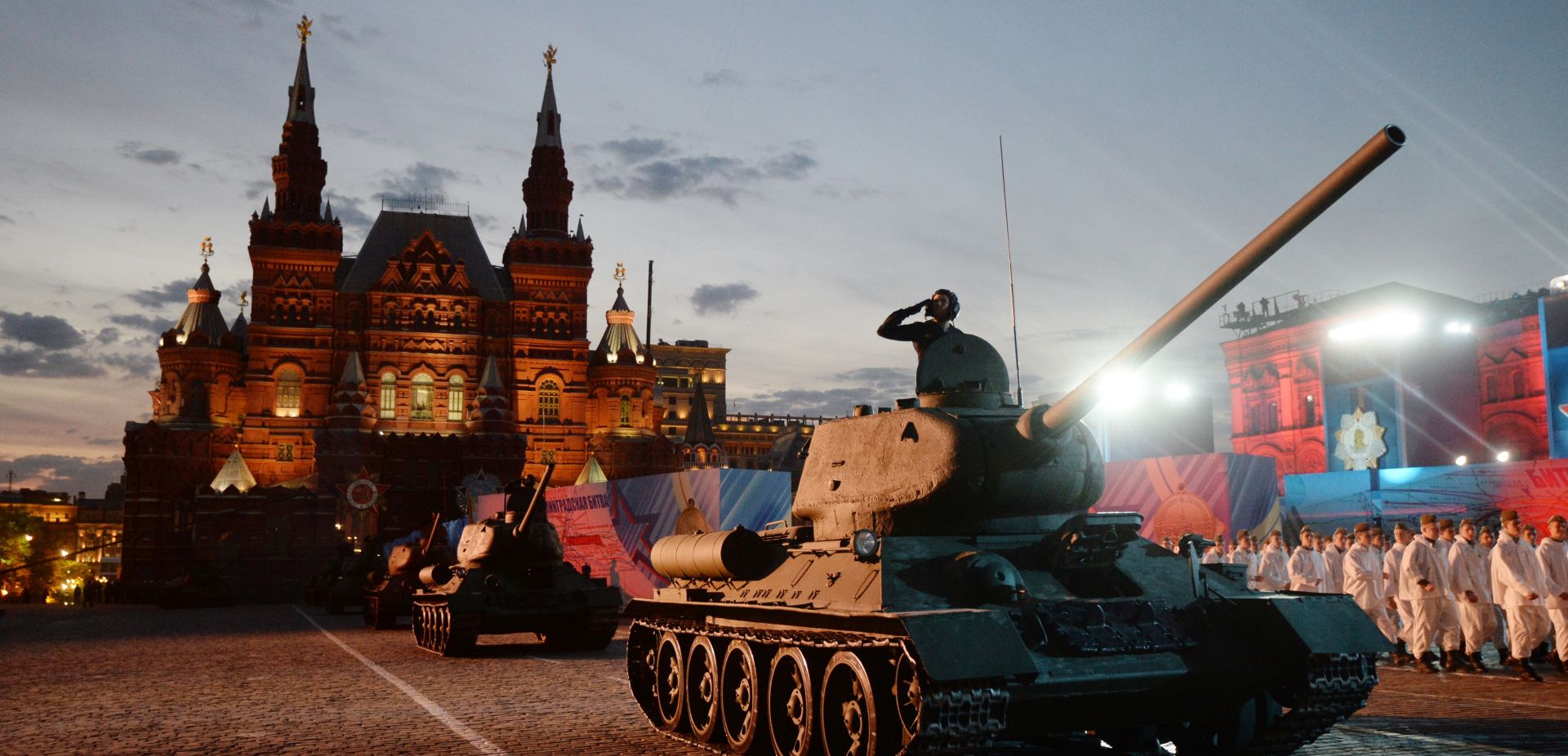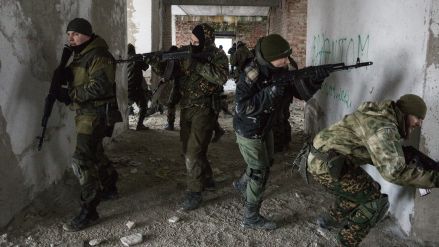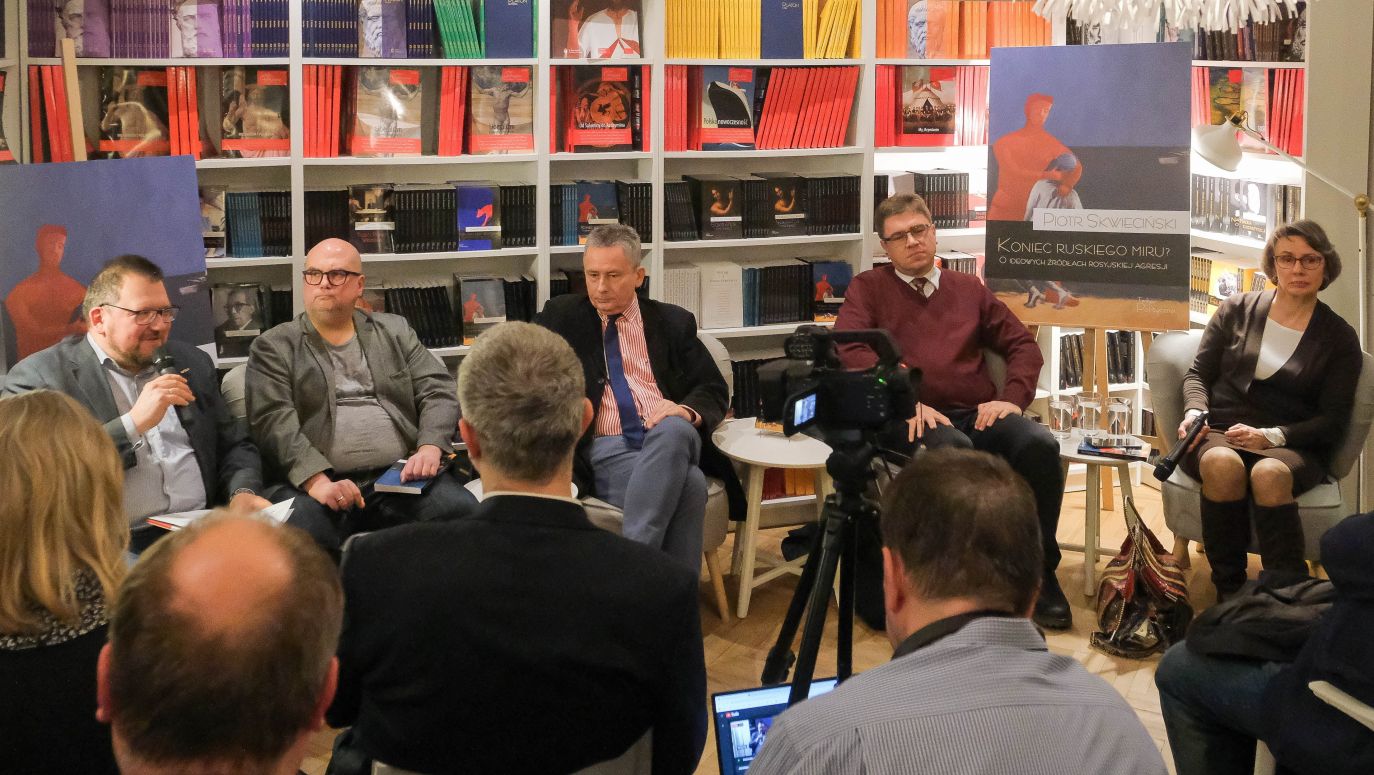While the authors writing about the collapse of Russia, led by Bugajski, treat this process as in a sense natural, that is, as one that can happen, that is possible and that does not break the rules governing the world, I have the impression that Skwieciński senses as if we are stuck with Russia. Not, of course, for the mere existence of a state called Russia inhabited by people calling themselves Russians and speaking Russian. Such a state will exist and such people will live. It is not about annihilation.
Reading Skwieciński’s book, however, left me with the impression that he was referring to a different Russia. A Tutchevian Russia [Fyodor Tutchev was a 19th century Russian diplomat, supporter of Russian imperialism, demonstrating in his publications a fanatical aversion to Poland, he described Poles as “Judases of Slavdom” – ed.], in which one can only believe.
One that naturally tends towards self-rule and feels good only when it reigns over others, and kills its own as easily as it kills strangers, leaving them, however, with the satisfaction of serving the empire. The satisfaction that, admittedly, they are slaves, but slaves of the “Tsar of the Universe”. A Russia that feels badly in the time of troubles, invariably considering “troubles” those times when it is not ruled by a strong hand. One for which Putinism is a natural state.
“Bolshevism was Russia’s choice and Putinism is Russia’s choice too – Skwieciński writes, crowning the thought of Russian historian Vladimir Buldanov, whom he quotes as saying that “liberals do not understand that the Russian people create for themselves exactly the kind of power that suits their imaginations.”
Such a Russia rejects democracy, as Skwieciński writes: “reflexively”, disbelieving it and associating it with uncontrolled anarchy, tragic for all, which can only be prevented by a strong power controlling the life of the nation “to the farthest corners”. Such a Russia is convinced that only the possession and realisation of a great idea makes the existence of the country and the nation worthwhile. Without this great idea, that is, without the imperial idea, the idea of conquering the world, the Russian sees no point in the existence of his country.
The Russia to which the world would be condemned if this terrifying vision were true is in fact a vision of a cancer on the body of the world. A cancer that will either take over the world or destroy it – or destroy it having taken over. In this sense, their fates are intertwined not in the same way as those of other states and nations, but are intertwined in a particular, existential way. This was emphatically expressed by one of Putin’s propagandists when, shortly after the invasion of Ukraine began, he threatened Russia’s enemies with nuclear annihilation by exclaiming on state television: “Why do we need the world if there will be no Russia in it?”
If Russia is indeed inhabited by such a species of people, then any change will be impossible, because after even the worst revolutionary convulsions, the monster will emerge again from this society wanting to embrace other peoples with his possessive love – and if they refuse, then he will want to annihilate them. Being stuck with Russia, we must suffer it, and suffer it in the literal sense.
Meanwhile, Janusz Bugajski treats Russians as normal citizens, equal in terms of aspirations and consequent decisions and behaviour to other citizens of other countries. As citizens who, in principle, are capable of shaping their political environment. Indeed, a Russia ruled in an imperial style, seeking to subjugate other nations is not a normal state and should cease to exist as such.
But in its place, in his opinion, Russians and other peoples living in the Russian Federation will be able to establish states similar to other existing states in the world. They just need to be helped to do so.
The key question, then, is: who are the Russians? Are they mentally immersed in self-rule and possessed of a desire to participate in the machine of destruction, even if only as its screws, so long as they are aware that they are co-creators of an idea that engulfs the whole world? Was indeed both Bolshevism with its crimes and Putinism their choice, as Skwieciński writes?
Or, as Bugajski would have it, are they essentially normal people and, as soon as they are given the opportunity and are freed from dictatorship, will they be able to build a normal state, or states like many on the planet?
I think a lot depends on the answer to this question.
– Robert Bogdański
TVP WEEKLY. Editorial team and journalists
– Translated by jz

 SIGN UP TO OUR PAGE
SIGN UP TO OUR PAGE 





